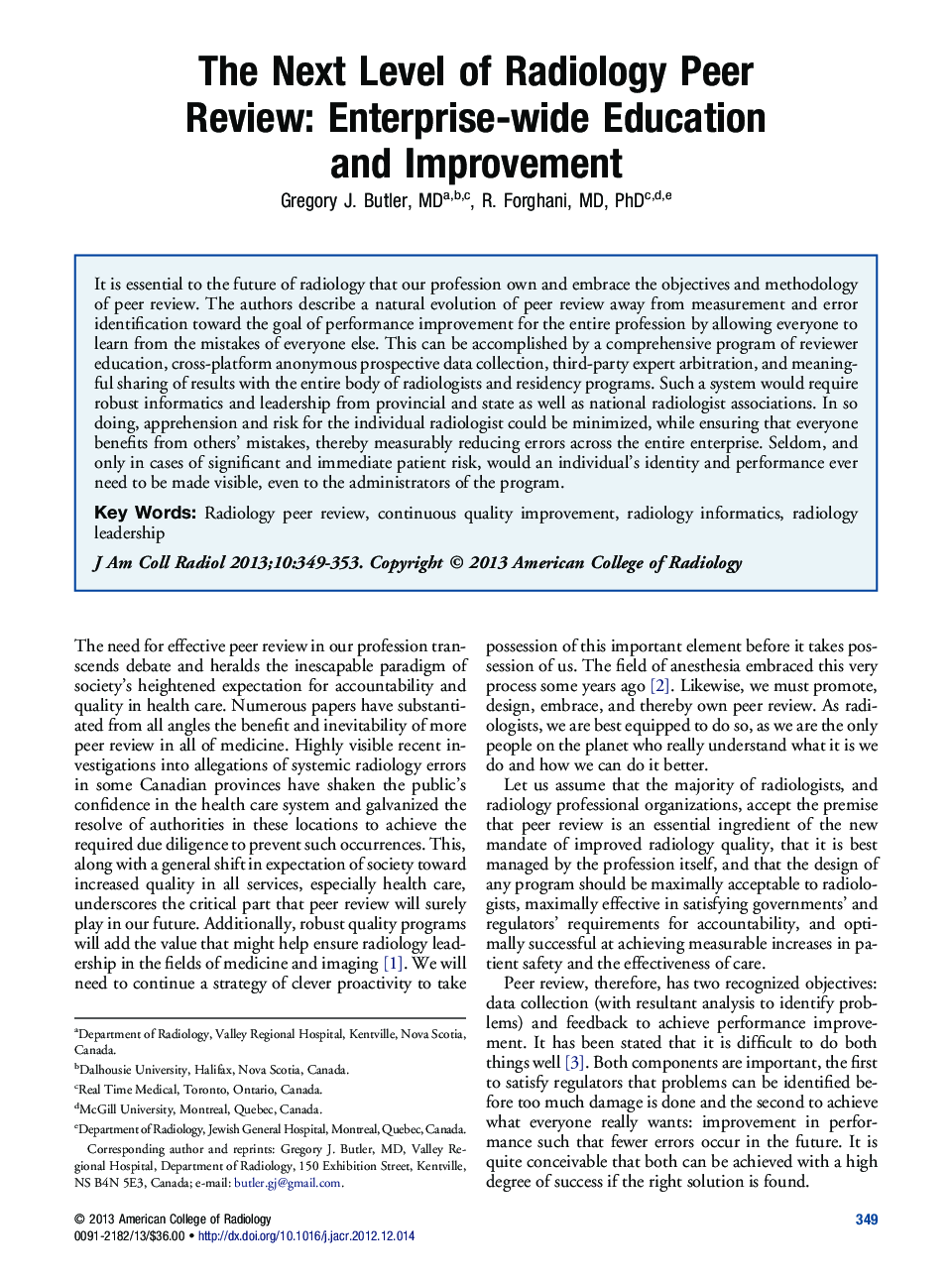| Article ID | Journal | Published Year | Pages | File Type |
|---|---|---|---|---|
| 4230706 | Journal of the American College of Radiology | 2013 | 5 Pages |
Abstract
It is essential to the future of radiology that our profession own and embrace the objectives and methodology of peer review. The authors describe a natural evolution of peer review away from measurement and error identification toward the goal of performance improvement for the entire profession by allowing everyone to learn from the mistakes of everyone else. This can be accomplished by a comprehensive program of reviewer education, cross-platform anonymous prospective data collection, third-party expert arbitration, and meaningful sharing of results with the entire body of radiologists and residency programs. Such a system would require robust informatics and leadership from provincial and state as well as national radiologist associations. In so doing, apprehension and risk for the individual radiologist could be minimized, while ensuring that everyone benefits from others' mistakes, thereby measurably reducing errors across the entire enterprise. Seldom, and only in cases of significant and immediate patient risk, would an individual's identity and performance ever need to be made visible, even to the administrators of the program.
Related Topics
Health Sciences
Medicine and Dentistry
Radiology and Imaging
Authors
Gregory J. MD, R. MD, PhD,
